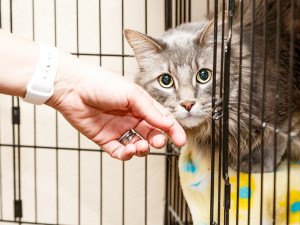Yep, Kittens Need Vaccines (Even Indoor Ones)
A vet gets the facts straight
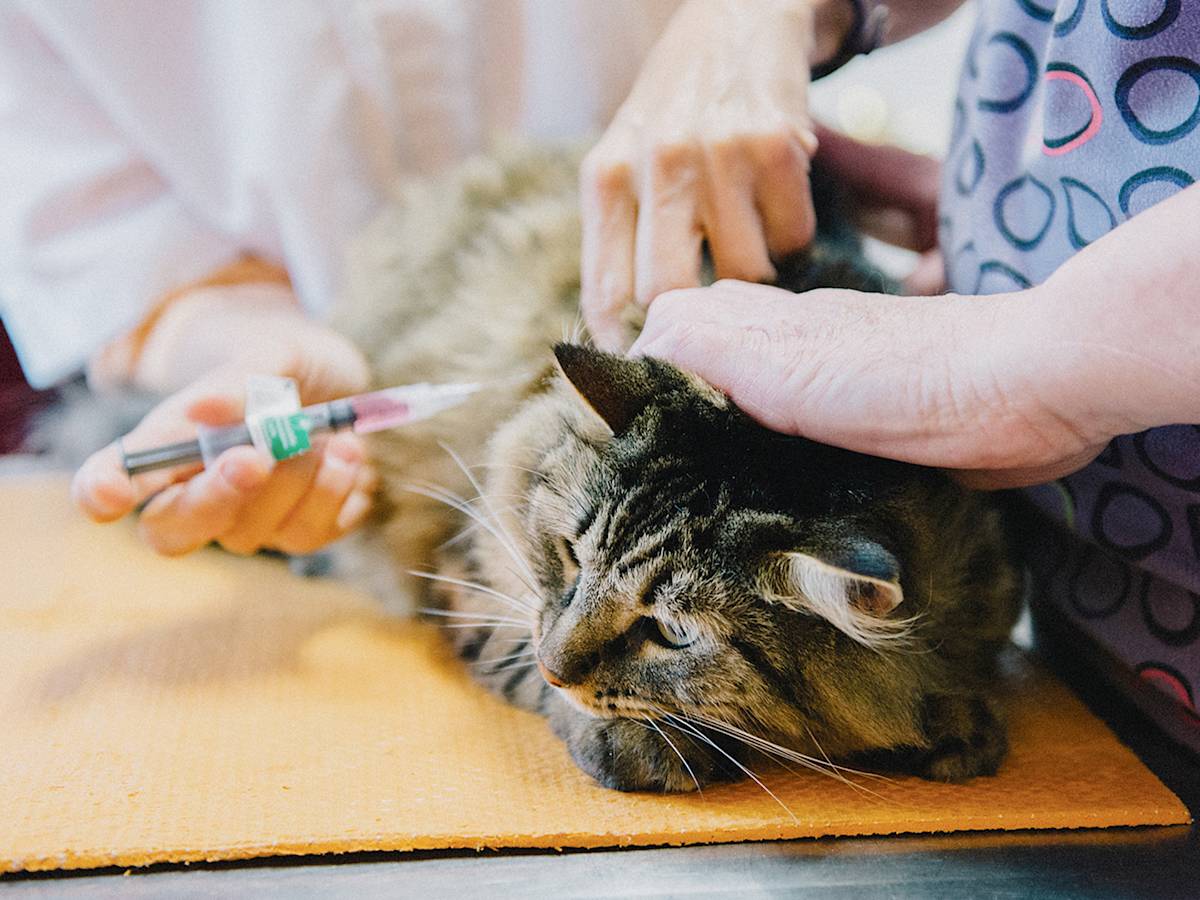
Share Article
No two cats are alike, right? So when it comes to vaccinating your cat, you’re not wrong to wonder if vaccine recommendations for indoor and outdoor felines are one size fits all – after all, one lot has been chilling solo almost their entire lives, while the other’s been running with a wild crowd. We asked Dr JoAnna Pendergrass how she calls the shots as cats are concerned. And she confirmed our suspicions: recommendations do differ for indoor vs outdoor cats. She explains below.
Indoor cats
Feline parvovirus
You may have heard your vet mention feline parvovirus – also known as panleukopenia or infectious enteritis. This disease can cause all sorts of health problems including vomiting and diarrhoea, lethargy and gastrointestinal issues, and can be fatal. The virus is extremely resilient and can be tracked into the house on your shoes or clothes, so even an indoor cat is at risk again meaning vaccination is necessary for all cats.
Cat flu
The ‘flu’ isn’t an exclusively human disease, unfortunately. ‘Cat flu’ causes very similar symptoms in felines as human flu does in us (a high temperature, sneezing, weepy eyes and a snotty nose) and is very contagious. Although it’s not the same virus (‘cat flu’ is a catch-all for several different feline viruses), it spreads easily through the air and saliva – so even if your cat has not been in contact with an affected pet, you could accidentally bring it into the house. Once a cat has caught cat flu it’s possible for them to become a lifetime carrier and suffer symptoms throughout life. Vaccination against the feline herpes virus and feline calici virus, the two main causes of ‘cat flu’, is therefore key for all cats.
Outdoor cats
Outdoor cats should have the same vaccinations as indoor cats and then some. As they roam outside, they will come into contact not only with other animals such as cats, wildlife and pets but will be exposed to far more environments than indoor-dwelling felines.
FeLV
Outdoor cats run a much higher risk of being infected with feline leukemia (FeLV) as the virus is spread through direct cat-to-cat contact. “The vaccine isn’t necessary for adult cats that have a low risk of exposure to FeLV or cats that have already tested positive for the virus (because they already have antibodies),” says Dr Pendergrass. “That said, the vaccine would be a good idea for an indoor cat that may have been exposed to a FeLV-positive cat or a cat with an unknown FeLV status.”
Bordetella & feline chlamydia
Some other vaccines to consider are those against Bordetella, which protects against a respiratory infection that is particularly contagious in young kittens, and feline chlamydia, which can be a cause of ‘cat flu’ and conjunctivitis. Both diseases are not fatal, and can be treated, but vaccinating against them can prevent your cat getting ill in the first place. They are not considered core vaccines in the UK but can be requested.
Primary course and booster vaccines
Unlike in humans, unfortunately (for your cat at least) these vaccines are not one-and-done affairs. Cats needs a ‘primary course’ of vaccines when they are kittens (two sets normally 3–4 weeks apart) and then yearly ‘booster’ jabs to maintain their immunity. “A vaccine is great at providing protection from a disease, but that protective immunity isn’t lifelong. It wears off over time, so booster shots are needed to give the immune system a boost and provide continued disease protection,” says Dr Pendergrass. “If a cat owner doesn’t bring a cat back in for booster shots, their cat becomes vulnerable to disease all over again.”
As there are many different vaccine brands, each with their own intervals and recommendations, speak to your vet about what you need to do to keep your cat’s immune system in the best shape.
Whilst it might seem like a bind to have a booster every year, the appointment isn’t just a jab-and-run. Your vet will give your cat a full health check to make sure they are fighting fit, and it can help pick up and address any other health issues early on.
Every cat is their own cat
As you can see, there is no one size fits all felines, and recommendations can vary with the age, health, and lifestyle of your cat. The important thing is to work with your vet to formulate a plan best suited to your feline companion ensuring they stay happy and healthy into old age.

Bailey Freeman
Bailey Freeman lives in Nashville, TN, where she works as a freelance writer, editor, content creator, and circus artist. You didn't read that wrong — when she's not writing about the world around her, she works as an aerialist and instructor (in a circus tent and everything). She's also a big fan of travel, the outdoors, and neon hair dye.
Related articles
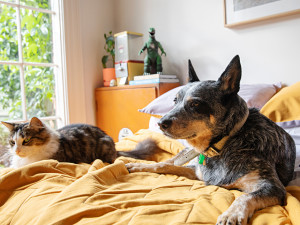
What’s the Deal With Pet Insurance?
It covers your pet so you can get that broken leg fixed – while keeping your wallet happy

Are Spider Plants Toxic to Cats?
Learn what you should do if your ‘spider babies’ and cat baby interact
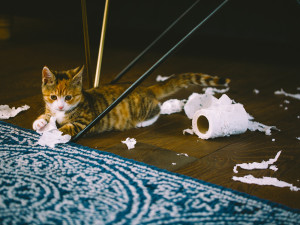
Why Does My Cat Chew On Everything?
How to decode your cat’s chewing habits when they’re nibbling on all the things
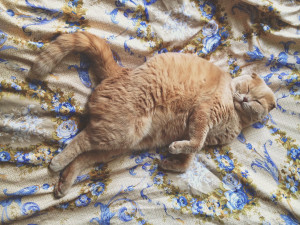
How Much Should You Actually Be Feeding Your Cat?
If they’ve lost their hourglass figure, then not that much – according to a veterinary nutritionist

